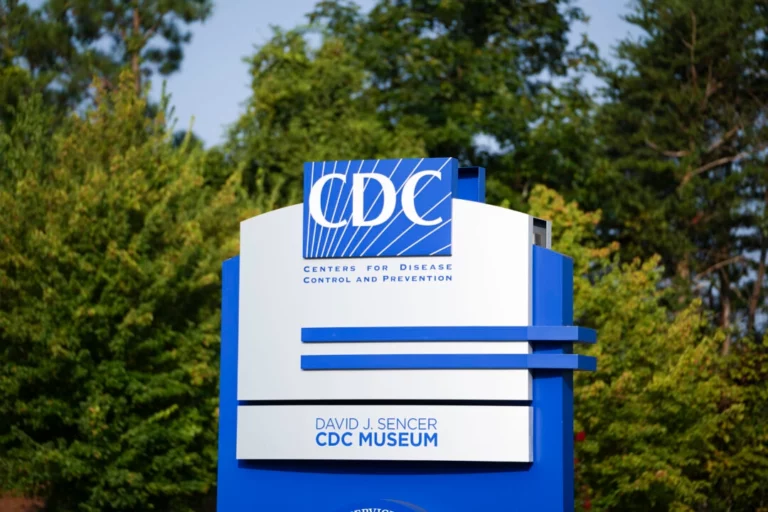Watch: ‘Mothers Have to Resist’: Scientist Warns Against RSV Shots for Newborns
French scientist and author Hélène Banoun, Ph.D., joined “The Defender In-Depth” this week to discuss what the data show about the safety signals associated with monoclonal antibodies administered to newborns for the prevention of respiratory syncytial virus, or RSV.
The White House announced last month it would make 230,000 additional doses of Beyfortus, a monoclonal antibody produced by Big Pharma giants AstraZeneca and Sanofi and administered to infants for the prevention of respiratory syncytial virus (RSV). The additional doses were to be made available this month.
The Centers for Disease Control and Prevention (CDC) recommended Beyfortus in August 2023. The drug is offered as a “one-time shot for infants born just before or during the RSV season and for those less than 8 months old before the season starts,” and for some high-risk 8- to 19-month-old infants.
But as the White House gears up its campaign promoting the use of Beyfortus and media outlets warn of a “tripledemic” of respiratory diseases — including RSV — this winter, independent French researchers warned of possible safety signals, including deaths and adverse events, in babies, coinciding with the rollout of Beyfortus.
French scientist and author Hélène Banoun, Ph.D., is one of the scientists warning about the safety signals. She joined “The Defender In-Depth” this week to discuss her findings and the risks associated with administering monoclonal antibodies to infants.
‘Statistically improbable increase’ in infant deaths following Beyfortus rollout
Banoun, along with independent French statistician Christine Mackoi, analyzed data from French public health authorities.
“French data for September and October show a very significant increase in newborn deaths between two and six days of life,” Banoun told “The Defender In-Depth.”
Banoun said:
“In September and October 2023, these averages are exceeded by 50%. This corresponds to the campaign to inject newborns in maternity wards which began [in France] on September 15 [2023] … this statistically improbable increase in infants coincides with the rollout of Beyfortus in French hospitals in the maternity wards.”
Banoun previously told The Defender that at least 200,000 newborn babies in France have received Beyfortus since Sept. 15, 2023, with 54 deaths recorded out of 55,489 births in France in September, and 61 deaths recorded out of 57,940 births in October.
Both figures exceeded historic mortality rates for those months to a statistically significant degree.
High numbers of adverse events associated with Beyfortus
In addition to the higher-than-expected level of infant deaths, Banoun said that a significant number of adverse events connected to the administration of Beyfortus were recorded during this period.
“We see on EudraVigilance, the European database for adverse effects, that most of the adverse effects [from Beyfortus] are infections, and particularly bronchiolitis and skin reactions, allergic reactions,” she said, noting that this matches adverse events observed during clinical trials for the drug.
“It’s very strange for a product that is conceived to battle respiratory disease [to result in] babies that have respiratory disease,” she said. “It’s the same for the database of the WHO [World Health Organization]. We have the same excess of bronchiolitis.”
According to Banoun, there are no other likely factors that can explain these high numbers of deaths and adverse events.
‘This product doesn’t work’
Banoun said monoclonal antibodies are known to cause potentially serious adverse events. She said the way these treatments work may actually exacerbate respiratory illnesses.
“Monoclonal antibodies are proteins made in laboratories that act like natural antibodies in our bodies,” Banoun said. “They seek out antigens … and they bind to the antigen in order to destroy them, but sometimes we see that they enhance the entry of the virus in the cell.”
“Certain monoclonal antibodies increase the risk of high blood pressure, congestive heart failure and heart attacks,” Banoun added. “They’re also [causing] lung problems. Some are associated with a higher risk of inflammatory lung disease and there are also many skin problems.
She said this matches the profile of the adverse events following the administration of Beyfortus.
This occurs because the monoclonal antibodies “act as a molecular bridge between the virus and the receptor, that is named Fc receptor,” Banoun said. “It binds to the … receptor of the Fc fragment on the cell of the baby and it can enhance the entry of the virus in the cell” — a phenomenon known as antibody-dependent enhancement.
Banoun said that, in Beyfortus, the Fc fragment has been modified, “to increase its lifespan,” adding that “perhaps this is the mechanism of the enhanced disease.”
According to Banoun, multiple studies have shown a modest — at best — decrease in severe respiratory infections and hospitalizations in connection with Beyfortus.
“This product doesn’t work,” Banoun said. “[It] didn’t decrease the risk of hospitalizations. So it’s not useful.”
Beyfortus not tested on newborns
Banoun also noted that while Beyfortus is administered to newborns, it was tested only on older babies in clinical trials — during which several babies who received the drug died.
“If we look at the studies with full-term babies, all the deaths observed are in the treated group and no death is observed in the placebo group,” she said. “We see also that in the clinical studies … no newborns have been injected … in one study where there were six deaths of babies, they describe the details of the deceased babies, and we see that they were not newborns.”
Nevertheless, “fact-checkers” have disputed data indicating the deaths of babies that participated in the Beyfortus trials, for which Banoun said, “The fact-checkers didn’t read the clinical trials.”
‘Mothers have to resist’
Financial interests are backing the promotion of Beyfortus, Banoun said.
“The market for bronchitis prevention will … represent several billion dollars for the pharmaceutical giants,” she said. “Pharmaceutical manufacturers have huge fines for the adverse effects of drugs, like, for example, Vioxx … and they hope to pay these fines with profits they will make with vaccines or [drugs like] Beyfortus.”
These financial interests, in turn, are backed by a web of powerful interests which Banoun said are representative of the concept of biopolitics — which she described as “a notion theorized by French philosopher Michel Foucault to explain how power is exercised over human populations, no longer just within the framework of state territories.”
“On a global level, biopolitics tends to impose health standards on all human populations and increasingly relies on vaccination as an alternative to care,” Banoun said. “Vaccination has become a scientific ideology supported by biopower, with no solid scientific corpus concerning its efficacy and safety.”
Banoun advised expectant mothers to decline Beyfortus for their babies.
“It’s only recommended — it’s not mandatory, so mothers have to resist,” she said.
Watch this week’s “The Defender In-Depth”:
Listen to this episode on Spotify.
Suggest a correction







